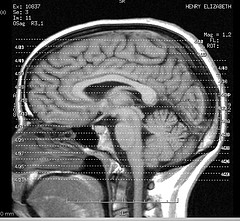 Bradley Kreit of IFTF has a provocative piece on behavioral genetics.
Bradley Kreit of IFTF has a provocative piece on behavioral genetics.
A court in Italy has shortened the prison sentence of a convicted murderer due to the prisoner’s heightened genetic predisposition for violence, according to Nature News. Specifically, the appeals court judge held that because the prisoner had five genetic mutations linked to violent behavior, as well as brain scan abnormalities, “would make him particularly aggressive in stressful situations.”
Kreit notes that this suggests an overconfidence in our understanding of the relationship of genes and behavior. He also notes the odd logic of this decision: an expert in the Nature news source “points out that prosecutors could use the same genetic evidence to argue for tougher sentences by suggesting people with such genes are inherently ‘bad’.”
The Italian court seems to be taking a common stance: that the mind — what we think of as a person — is separate from the brain and its underlying genome. In this instance, they seem to be reasoning that the murderer is not evil, or fully responsible, because his behavior is hard-wired: he didn’t do it, his brain did.
The problem with this approach is that the mind is ultimately a product of the brain: all behavior has underlying physical shapers (though not, in most cases, determinants). Everything good and bad that people have ever done was heavily shaped by brain chemistry and their genomes; it’s just that we have never been able to detect and measure the shapers in the past.
Now we can. We want to use this knowledge to help people, including those with “bad genes.” But an explanation is not an excuse. It does not mean that the we have to abandon our prior sense of right and wrong, or better or worse. We will retain the right to say that something is evil, or good, even as we know more about how it came to be.
(Image courtesy Liz Henry, Flickr)
 In many movies, totalitarian governments closely track banned behavior: in
In many movies, totalitarian governments closely track banned behavior: in